Policy for Persons with Disabilities
- Regdate2019-07-29 18:12
- Hit1707
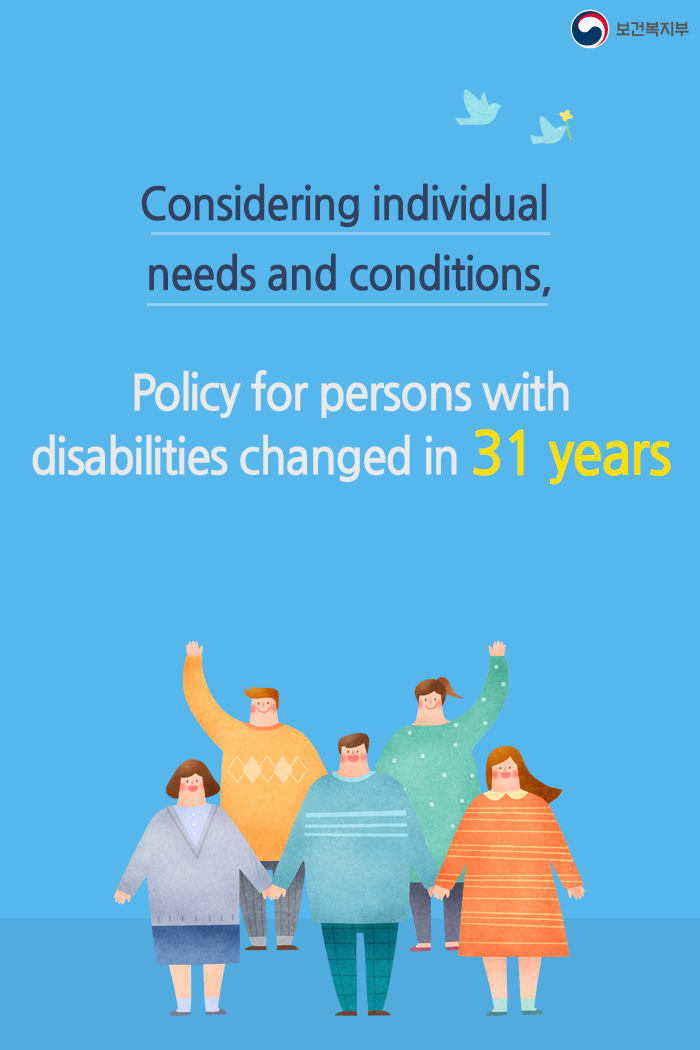
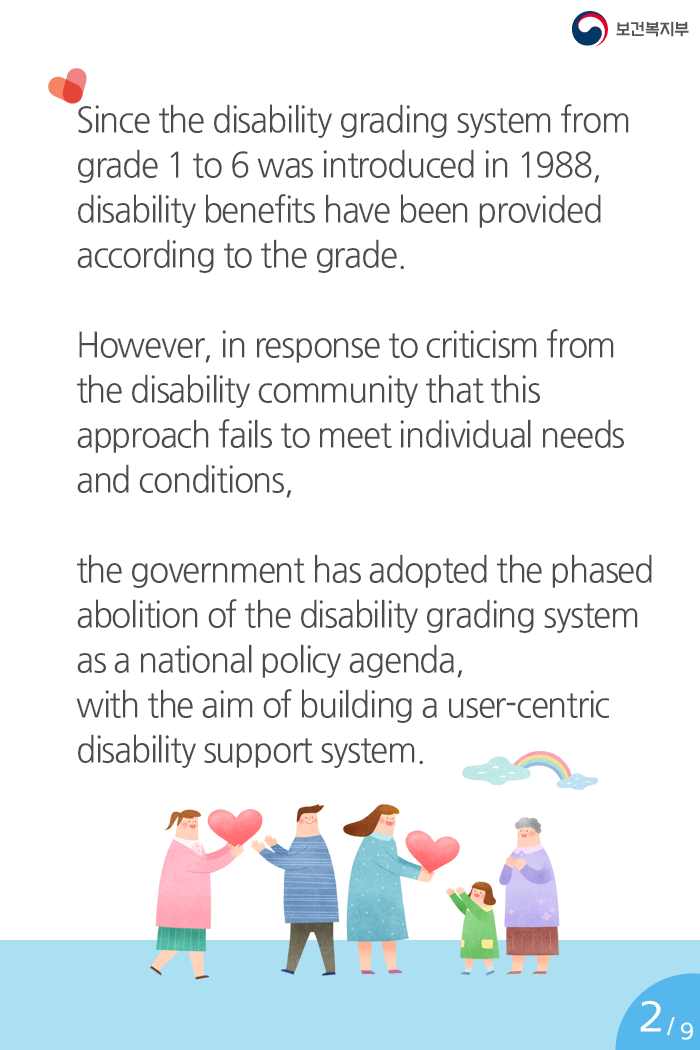
Since the disability grading system from grade 1 to 6 was introduced in 1988, disability benefits have been provided according to the grade.
However, in response to criticism from the disability community that this approach fails to meet individual needs and conditions,
the government has adopted the phased abolition of the disability grading system as a national policy agenda, with the aim of building a user-centric disability support system.
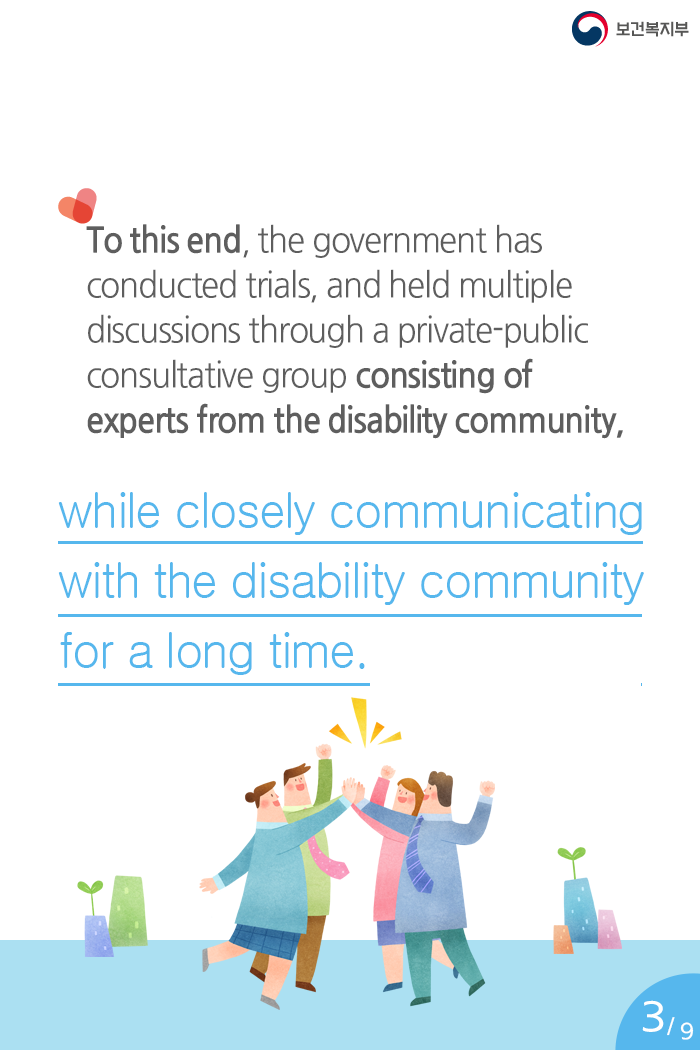
To this end, the government has conducted trials, and held multiple discussions through a private-public consultative group consisting of experts from the disability community,
while closely communicating with the disability community for a long time.
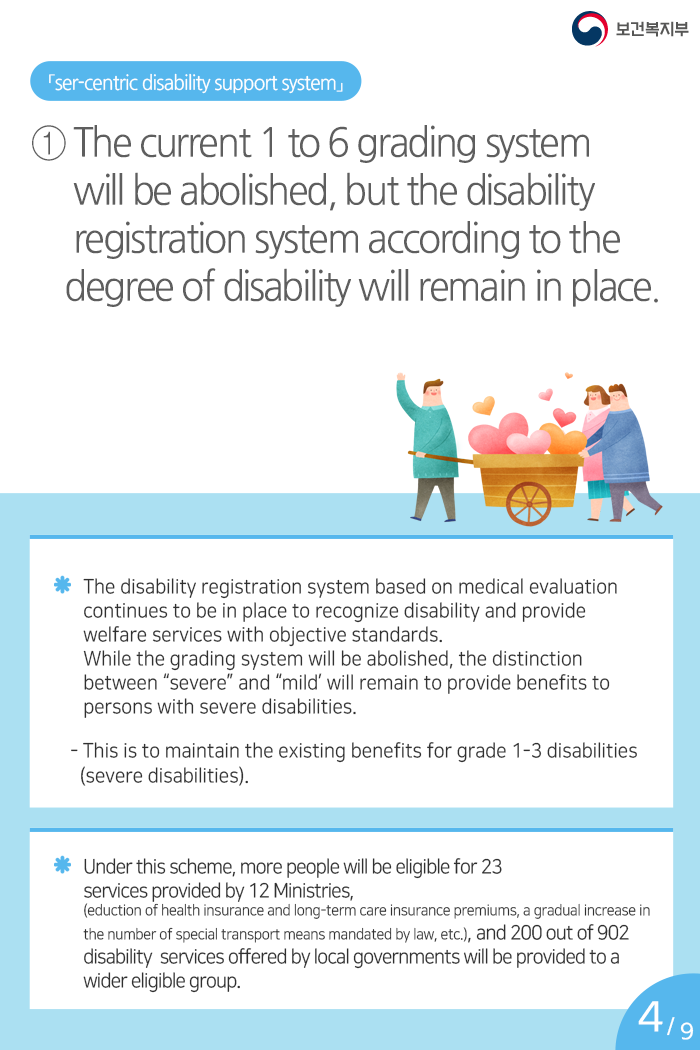
「User-centric disability support system」
① The current 1 to 6 grading system will be abolished, but the disability registration system according to the degree of disability will remain in place.
- ○ The disability registration system based on medical evaluation continues to be in place to recognize disability and provide welfare services with objective standards. While the grading system will be abolished, the distinction between “severe” and “mild’ will remain to provide benefits to persons with severe disabilities.
- This is to maintain the existing benefits for grade 1-3 disabilities (severe disabilities).
- ○ Under this scheme, more people will be eligible for 23 services provided by 12 Ministries (reduction of health insurance and long-term care insurance premiums, a gradual increase in the number of special transport means mandated by law, etc.), and 200 out of 902 disability services offered by local governments will be provided to a wider eligible group.
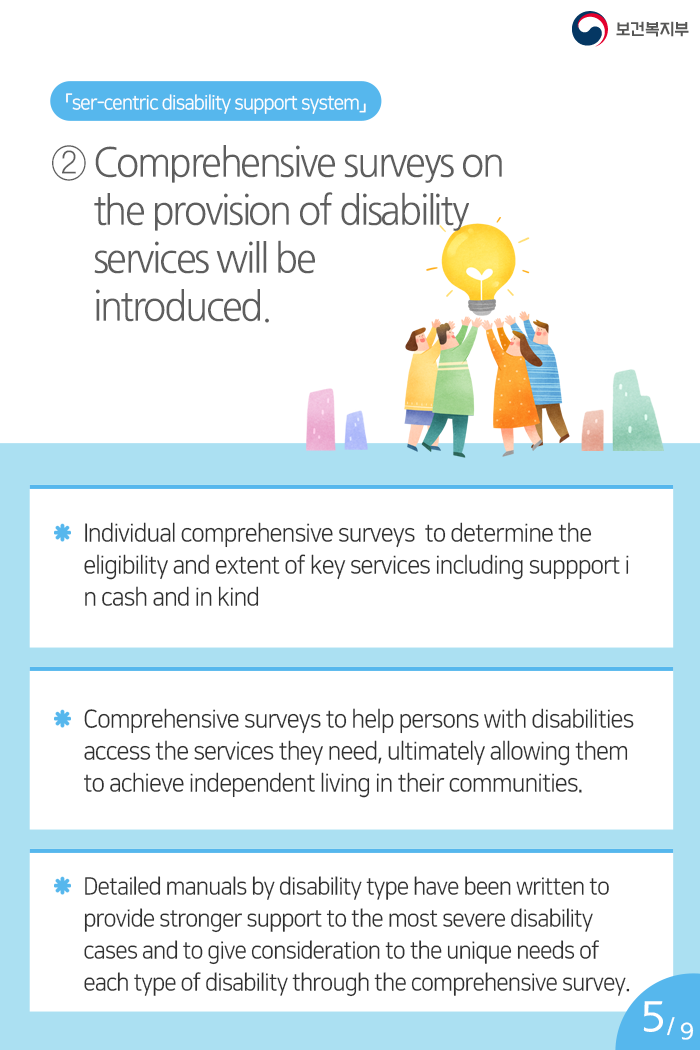
「User-centric disability support system」
② Comprehensive surveys on the provision of disability services will be introduced.
- ○ Individual comprehensive surveys to determine the eligibility and extent of key services including suppport in cash and in kind
- ○ Comprehensive surveys to help persons with disabilities access the services they need, ultimately allowing them to achieve independent living in their communities.
- ○ Detailed manuals by disability type have been written to provide stronger support to the most severe disability cases and to give consideration to the unique needs of each type of disability through the comprehensive survey.
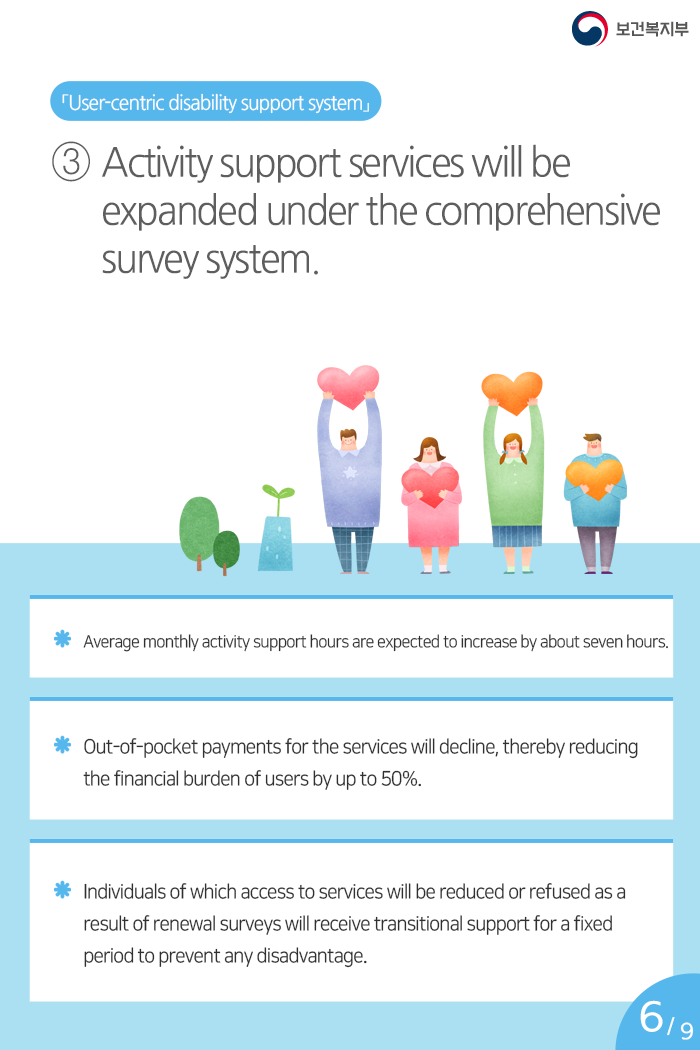
「User-centric disability support system」
③ Activity support services will be expanded under the comprehensive survey system.
- ○ Average monthly activity support hours are expected to increase by about seven hours.
- ○ Out-of-pocket payments for the services will decline, thereby reducing the financial burden of users by up to 50%.
- ○ Individuals of which access to services will be reduced or refused as a result of renewal surveys will receive transitional support for a fixed period to prevent any disadvantage.
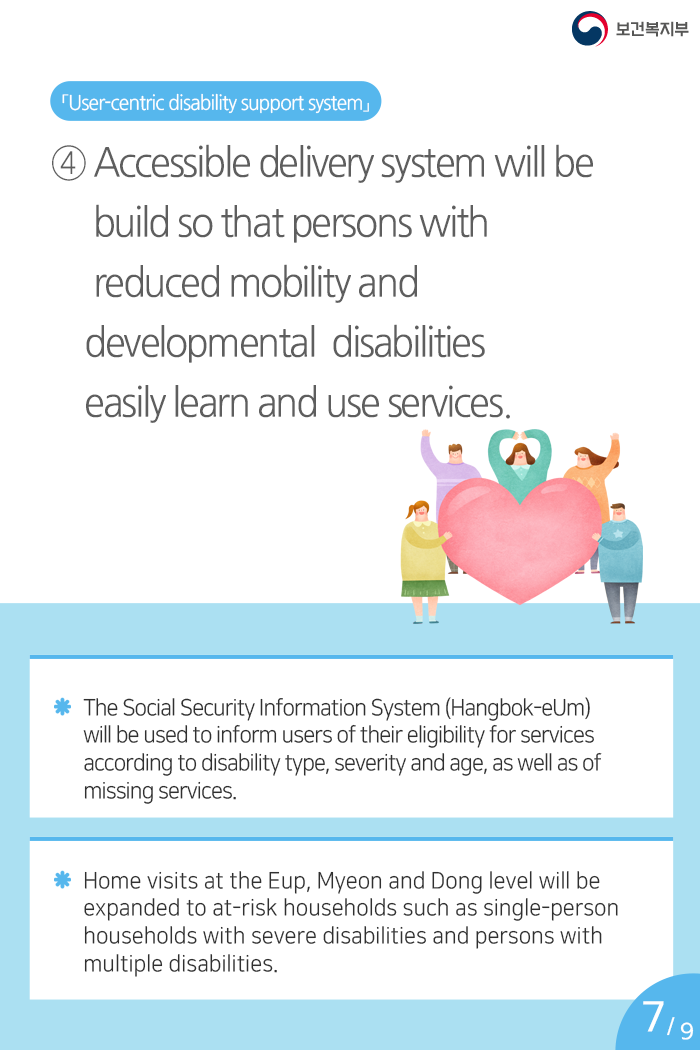
「User-centric disability support system」
④ Accessible delivery system will be build so that persons with reduced mobility and developmental disabilities easily learn and use services.
- ○ The Social Security Information System (Hangbok-eUm) will be used to inform users of their eligibility for services according to disability type, severity and age, as well as of missing services.
- ○ Home visits at the Eup, Myeon and Dong level will be expanded to at-risk households such as single-person households with severe disabilities and persons with multiple disabilities.
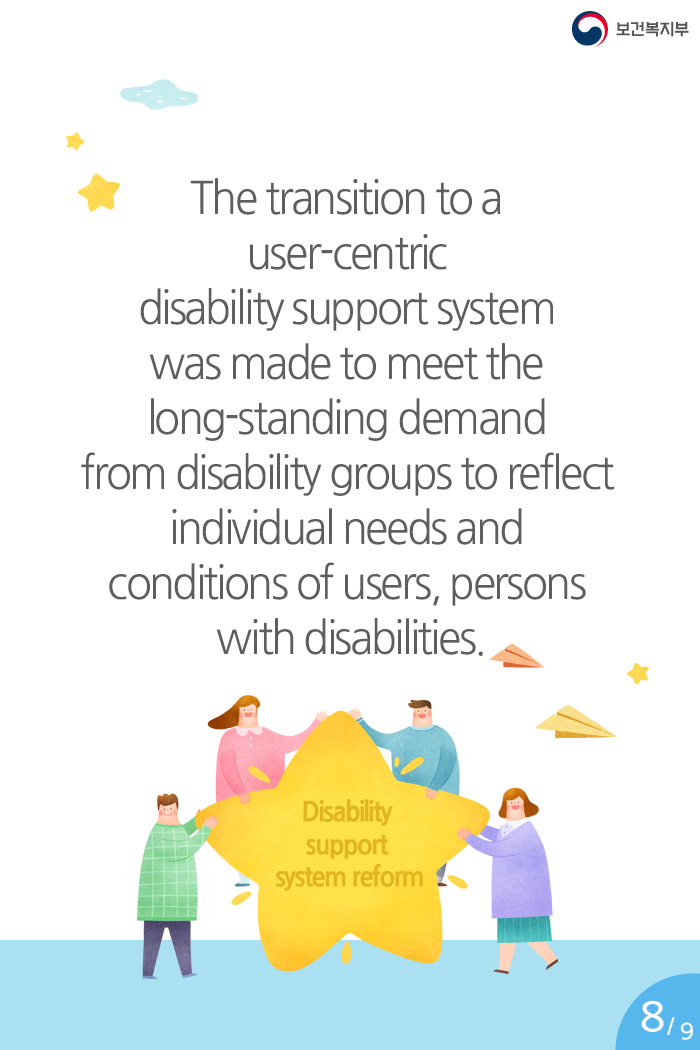
The transition to a user-centric disability support system was made to meet the long-standing demand from disability groups to reflect individual needs and conditions of users, persons with disabilities. Disability support system reform
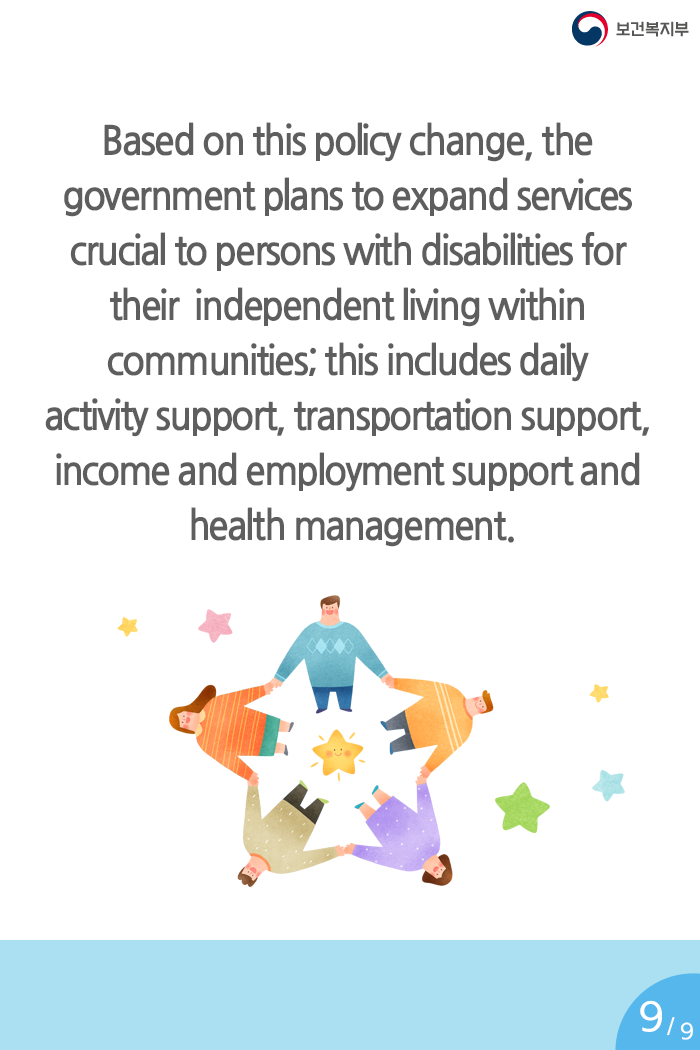
Based on this policy change, the government plans to expand services crucial to persons with disabilities for their independent living within communities; this includes daily activity support, transportation support, income and employment support and health management.